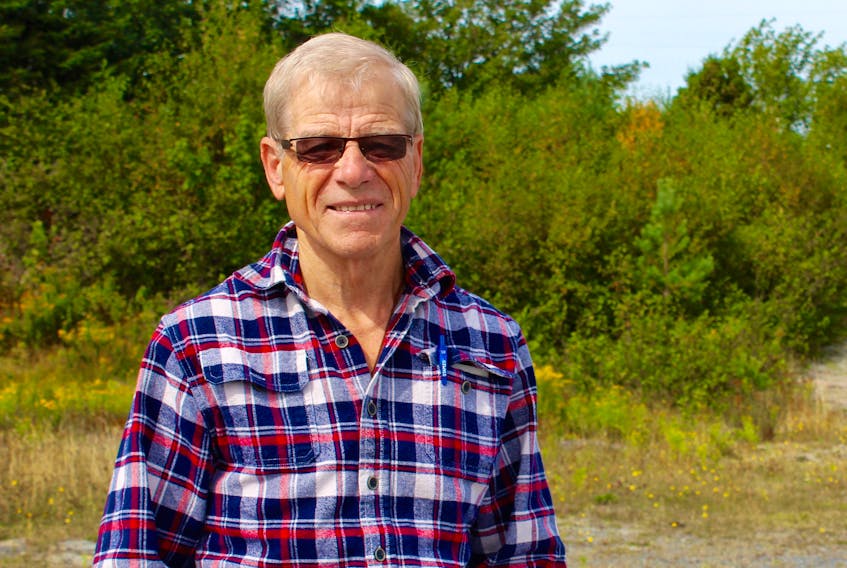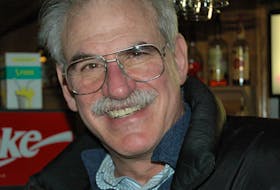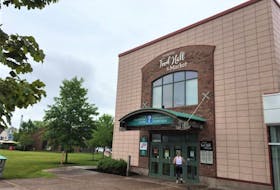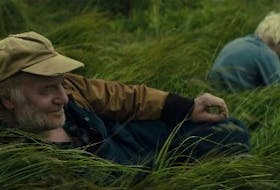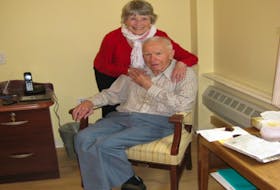FRESHWATER, N.L.
NEWFOUNDLAND AND LABRADOR
CANADA
When he isn’t touring the province alongside fellow musicians Wayne Chaulk and Kevin Blackmore as Buddy Wasisname and the Other Fellers, Ray Johnson dedicates much of his free time to appreciating the culture and history that Newfoundland and Labrador has become so well known for over the years.
The Lower Island Cove resident has a longstanding appreciation for everything that makes Newfoundland the unique province that it is, and his love for his island home is immediately evident to anyone that sits to have a conversation with him.
Now, Johnson is working closely with a group of students and a professor from the University of Toronto to share knowledge of rural Newfoundland, and spread the word about just how special the province’s culture really is.
Johnson and Matthew Brown have been friends for a number of years, originally coming into contact with one another through Brown’s father, Roger Brown. Recently, Brown landed a position as a professor for the University of Toronto, and is spearheading a class that looks into the intricacies of Newfoundland and Labrador, including the ways Newfoundlanders have managed to create their own way of life along the edges of North America, investigating the culture and the beginnings of the province, such as what initially brought people to the island, and, more importantly, what made them stay.
The course is to be separated into three parts – Nissological Soundings, where students will study how distance and isolation have shaped the province in many different ways.
Part B is where students will get the opportunity to explore and study Newfoundland on a first-hand basis. It is here where the 12 students will take a trip to the province and spend two-three nights in a rural community to see for themselves how outport communities continue to thrive on the island.
The third and final portion of the class will see students compile their research and findings into a Rural Revival Guide, which Brown is hoping will act as an easily accessible document that will aid outport and rural communities when taking on their own re-envisioning work. The document will help locals visualize future opportunities and projects to help expand their communities using the findings of each individual student.
Johnson said he sees this class as a means of not only sharing Newfoundland with those who are unfamiliar with the province, but also as a means of preserving what Newfoundland was built upon – family, comradery, and hard work. In order to properly showcase these things, Johnson has chosen Freshwater as the destination for the students’ visit.
“Matthew always knew how much outport Newfoundland meant to me,” Johnson explained. “For years, I’ve been doing presentations and such where we discuss outmigration, regionalization, and all the other things that go with it. Matthew knew this, and just recently he came to me asking for my help with this course.
“He wants his students to see and understand the difference between an island as opposed to the mainland. He wants them to see what it’s like to live in rural Newfoundland, and all the things that go with it – the customs, the music, the folklore, the fishing, everything. And at the end of the day, I think Freshwater is a perfect location for them to see all of that.”
Johnson explained that Freshwater’s proximity to Carbonear meant that it was a fairly easily accessible community. However, on top of this, Johnson is certain that the things Freshwater can offer the students is exactly what Brown is looking for.
Alongside a team consisting of four or five people, Johnson is hopeful that the experiences presented to these students during their stay in the province will be something they won’t soon forget.
“We’ve chosen Freshwater so they can get first-hand knowledge as to what it means to be a part of this island,” he said. “Freshwater is a community that offers exactly that.”
The topic of rural Newfoundland is something Johnson holds very close to his heart. Over the years, he says he’s seen a decline in interest in Newfoundland’s heritage among the youth of the province, and he fears that this same lack of enthusiasm for Newfoundland’s roots will lead to a future with no ties to the past.
“I’ve been trying to spread a message here,” he said. “If the young people in this province don’t see what the elderly people have done for Newfoundland and Labrador, everything is going to drift off.
“This project means a lot to me, because this is a perfect opportunity to spread that knowledge with people, even people outside the province, who have an interest in rural Newfoundland. I’d like to see these students come here and exchange information and experiences with people who have been here their whole lives.” Johnson added, “Work together, and as a group, as Newfoundlanders and visitors alike, we can revitalize an interest and respect for our heritage, starting at the roots. There’s potential here.”
The students are planning to take the trip to the province during week five of the semester, scheduled for Oct. 9-12.

